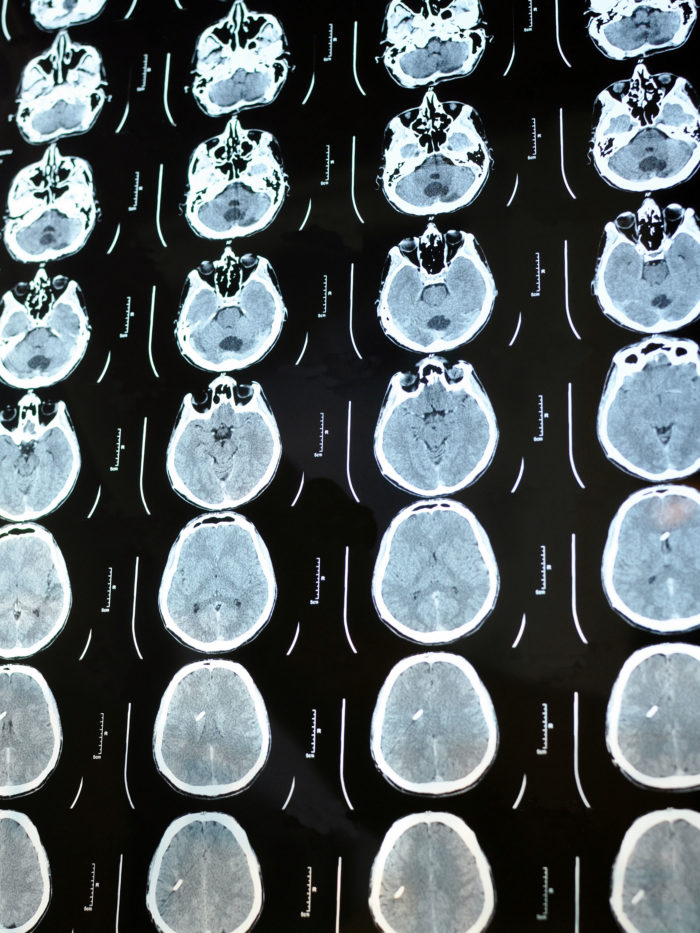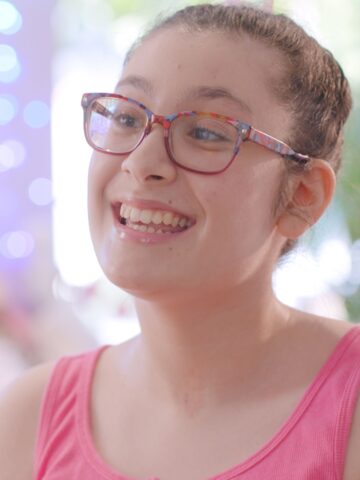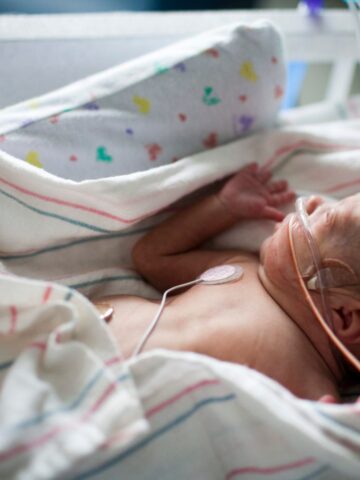The benefits of physical activity on brain health and function are, well, a no-brainer.
Study after study over the last two decades, most focused on adulthood and aging, have made this common knowledge.
But what about the young, developing brain: Does physical activity have a more potent (and long-lasting) effect on brain health if it occurs during development? And can we use what we learn about exercise’s effects on the brain to treat the effects of chronic stress in childhood?
An attending physician in the CHOC Neuroscience Institute, along with student researchers in her lab at UC Irvine, are probing these questions.
And their work recently yielded a two-year, $100,000 grant from the Child Neurology Foundation for their project, “Targeting Epigenetic Mechanisms of Exercise to Preserve Cognitive Function After Early-Life Adversity.”
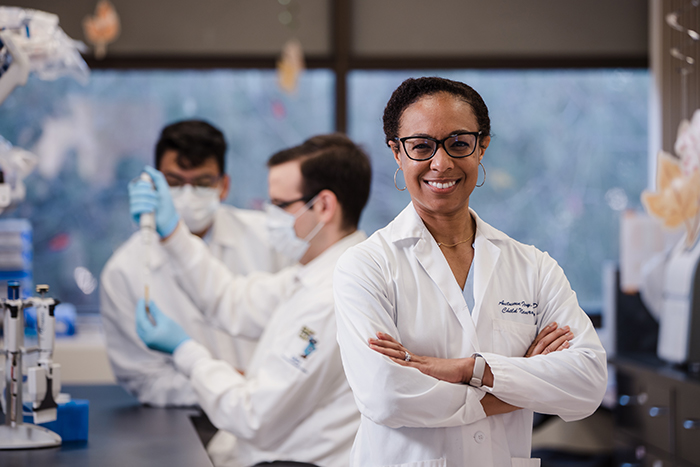
Dr. Autumn Ivy says her grant-funded study, which begins in January 2022, will look at physical activity during specific periods of brain development that are highly sensitive to early-life experiences. These experiences can include caregiving from a parent, mental stimulation, physical touch such as hugs, and even chronic stress.
Stress in childhood can have negative impacts on brain health that can last into adulthood. But what can we do about it? Dr. Ivy believes some of the answers can be found by looking closely at how physical activity can benefit the developing brain.
“I’m excited for the opportunity to do this research, and for the generous support from the Child Neurology Foundation,” says Dr. Ivy, an assistant professor in the Departments of Pediatrics, Neurology, and Anatomy/Neurobiology at UCI. “This work will reveal the exact ways in which physical activity can impact brain function in children, and even build resilience, when a child is exposed to chronic stress.
“In my neurology clinic at CHOC, I certainly see the impact of chronic stress on patients — sometimes the stress can even manifest as the neurological symptoms I am seeing them for,” she adds. “In terms of brain health and memory function, exercise can be as beneficial as some medications.”
ACEs and the brain
Dr. Ivy and her team are examining how chronic stress during early life caused by unpredictable maternal care affects memory function in the developing brain. Such stress is among several types of ACEs, which stands for adverse childhood experiences. To study how the brain remembers the early life experiences of stress and exercise, Dr. Ivy has turned her attention to the field of epigenetics.
Epigenetics is the study of how behaviors and the environment can cause changes to the genes within cells that affect the way those cells work.
“You can think about the concept of epigenetics by considering identical twins,” Dr. Ivy explains. “Twins are born with the same genetic material. But when they grow up, they often have different personalities, careers, interests, etc., because their experiences can shape how cells in the brain function and interpret information from their environment. Epigenetics plays a big part in what makes every individual unique, because we are all shaped by our experiences.”
ACEs can create chemical tags, or epigenetic markers, on DNA within the cells of the brain. Scientists believe that these epigenetic marks play a big role in how the brain has memory of a stressful experience. Researchers study these specific molecular mechanisms and, with proper therapies, alter the tags to influence how genes are expressed.
“Can we preserve memory by introducing exercise? This is a question we’re trying to answer.”
Dr. Autumn Ivy
Dr. Ivy’s specific interest is using exercise as a treatment to alter these epigenetic tags in a beneficial way, to potentially reverse the effects of chronic stress in the developing brain.
“Can we capitalize on understanding exercise so much so that we can ‘pull out’ its epigenetic mechanisms and target them as therapies for our neurological patients, or patients exposed to chronic stress?” Dr. Ivy asks. “That’s really what I envision for this work.”
Of mice and men
In her lab, Dr. Ivy and her team members – three graduate students and two undergraduates – have been using mice to study epigenetic markers created by simulating chronic stress in the rodents.
They designed a mouse model of “early-life adversity” where the mother doesn’t have enough nesting material in her cage. Her care to her pups becomes fragmented and neglectful because she’s constantly trying to make a new nest. The location of the pups in the cage will change day by day, causing chronic stress.
When the early-life adversity mice become middle-adults, memory deficits start showing up, Dr. Ivy explains.
So prior to this point, she introduces a running wheel in the cage, currently around the age of adolescence for the mice.
The idea is to see if exercise can mitigate memory loss later down the line.
“Can we preserve memory by introducing exercise?” Dr. Ivy asks. “This is a question we’re trying to answer.”
Initial findings show that if the mice who exercise, at the particularly sensitive period of development of around 4 weeks old (equivalent to 3-5 years for humans), will be able to acquire a memory task more rapidly than animals who didn’t exercise.
Now Dr. Ivy’s team will seek to identify the epigenetic underpinnings of this long-lasting effect of early-life exercise.
“There’s one specific epigenetic mechanism we identified, which is classified as a histone modification,” Dr. Ivy explains. “We found that this particular histone modification is involved in this early-life exercise mechanism leading to improved memory.
“Now we’re taking that knowledge and applying it to our early-life adversity model and asking, first, does early-life adversity also lead to changes in histone modification or other epigenetic mechanisms? And if so, second, can we reverse maladaptive or negative epigenetic mechanisms by introducing exercise after the fact?”
Dr. Ivy, who started at CHOC in March 2018 and at UCI in July 2017, says her team’s goal is to eventually find epigenetic mechanisms that are translatable to humans.
“Such mechanisms could have the potential to inform therapies for cognitive dysfunction in children with neurological disorders, those exposed to ACEs, or those that are physically unable to exercise,” she says.
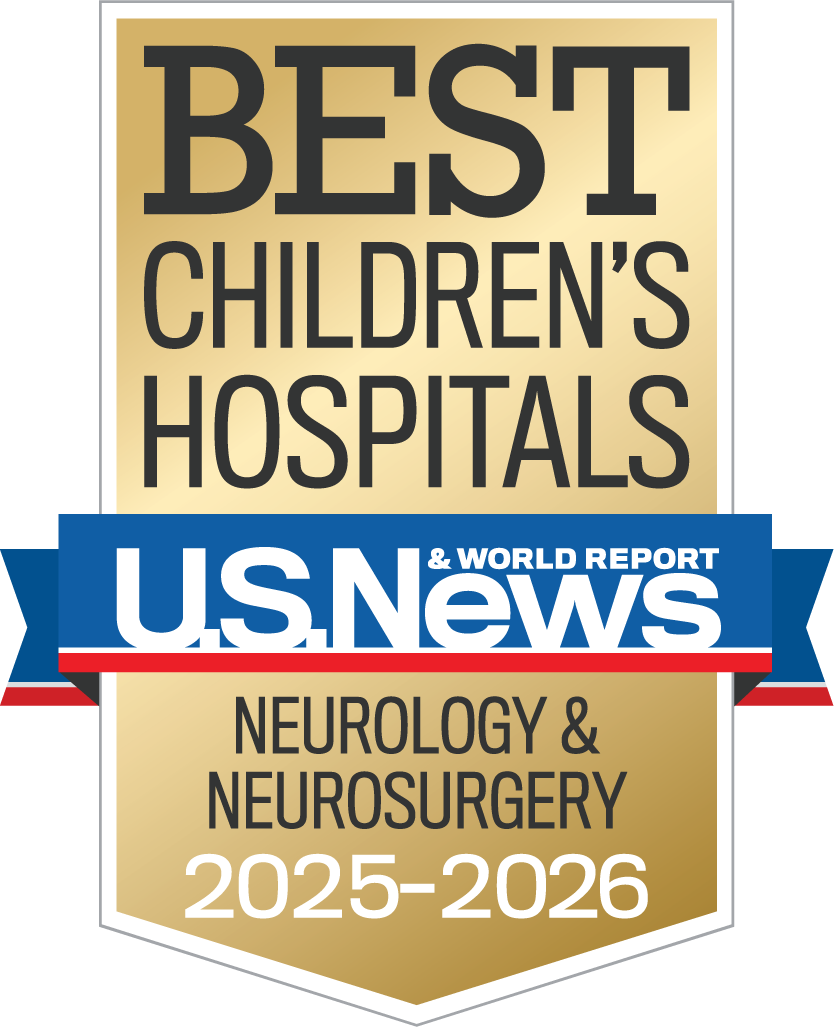
CHOC Hospital was named one of the nation’s best children’s hospitals by U.S. News & World Report in its 2025-26 Best Children’s Hospitals rankings and ranked in the neurology/neurosurgery specialty.

